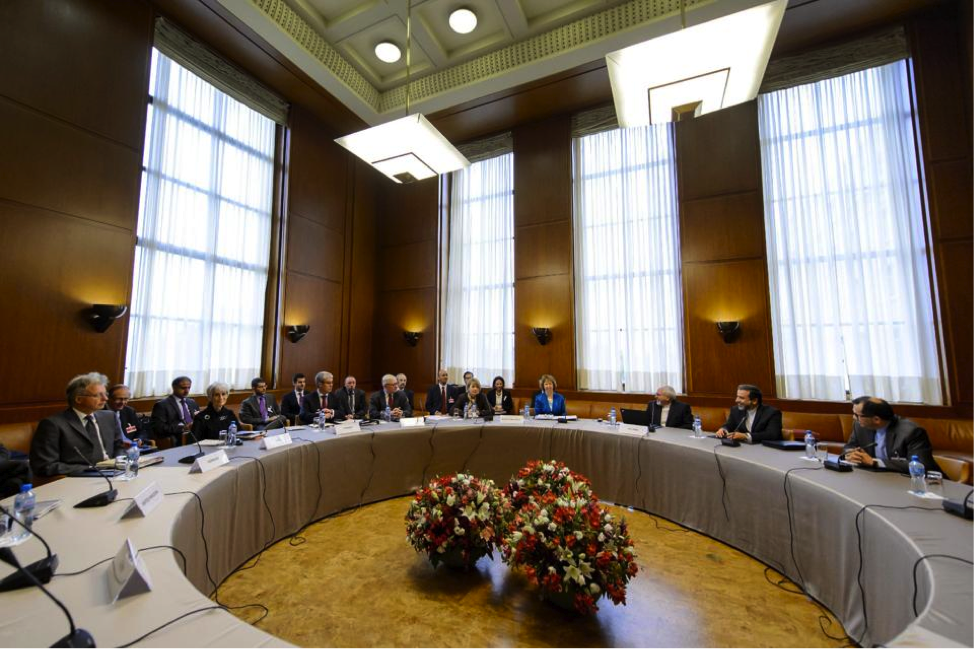The negotiations in Geneva are exciting, but miss much of the action.
As US and Iranian diplomats sit down for the much-anticipated nuclear negotiations in Geneva, attention has focused on the drama unfolding in Europe. From Secretary Kerry’s premature departure from Israel on Friday, to French indignation over weak concessions on Saturday, there has been ample entertainment. However, understanding the current negotiations in Geneva, and the obstacles they may face, requires taking a broader perspective.
In this round of negotiations there are at least four simultaneous discussions occurring, each with its own set of players and incentive structures. The most public negotiation is the one occurring in Geneva. International diplomats have an opportunity to reach an agreement where all are better off. Arriving at an agreement is in each party’s mutual interest, and international expectations have, no doubt, risen to the occasion.
There are, however, separate negotiations occurring in both the US and Iran, as well as between the US and its allies not at the negotiating table. In Iran, President Rouhani must negotiate simultaneously with the clerics and military hardliners who are reluctant to trust any international deal. Without their tacit approval, the Iranian negotiators remain bound to domestic political constraints. Similarly, in the US, the Obama administration must work with its own party and with sympathetic Republicans to overcome any potential spoilers, such as hawkish members of Congress or political lobbies in DC that oppose concessions to Iran.
Meanwhile, the US is also conducting negotiations with its allies not in Geneva. Israel and Saudi Arabia are perturbed by the prospect of US-Iranian rapprochement. The US has thus doubled-down on its diplomatic efforts in Israel-Palestine in order to signal its commitment to Middle East peace. Nevertheless, relations appear strained: in a brash move Saudi Arabia has declined a seat at the United Nations Security Council and relations between Netanyahu and Obama remain cold at best.
These other deliberations outside Geneva are significant, because they constrain the discretion of negotiators in Geneva, making them too weak to force their will on those they represent. All parties are aware of this fact. Iran knows that the Obama administration is limited in its ability to relieve a congressionally imposed sanctions regime, and the US recognizes that the Iranian negotiating team is trumped by the will of the Ayatollah and, possibly, the Republican Guard.
It is also a fact that each party will play to its own advantage at the negotiating table. Antagonistic constituencies signal that even if negotiators are willing to compromise, those they represent would remain obdurate, which inflates negotiators’ demands. Thus, through signaling and contingent behavior, parties far beyond Geneva can limit the choices of those at the negotiating table. A diplomatic breakthrough requires looking beyond Geneva and balancing simultaneously the demands of domestic and international politics. That would be something worth watching.
